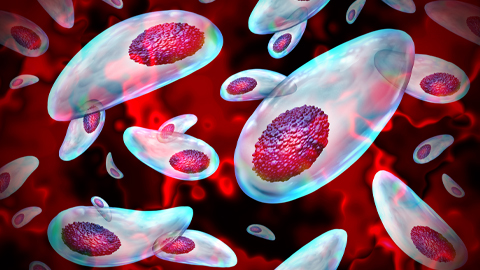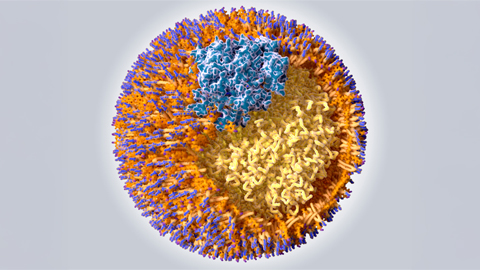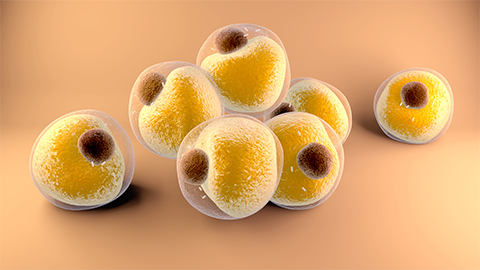From the Journals: JLR
Binge drinking and bacterial lipoprotein regret. How statins change lipid profiles in obese men. Read about papers on these topics recently published in the Journal of Lipid Research.
Binge drinking and bacterial lipoprotein regret

We can define alcohol binge drinking, or ABD, in terms of the number of alcoholic drinks consumed in a given period of time, usually four to five or more drinks on one occasion. ABD is associated with serious injury to the brain, gut and liver as well as risks due to cognitive decline in memory and thinking.
According to the Centers for Disease Control and Prevention, ABD is most common among women and young adults aged 18 to 34. ABD affects the gut microbiome, as it allows bacterial lipopolysaccharides, or LPS, a major structural component of the outer membrane of Gram-negative bacterial cells, to move from the gut to the bloodstream. Lipid A is the most bioactive component of LPS and a potent endotoxin. During ABD, lipid A aggregates and binds to various apolipoproteins, or Apo proteins, in the prefrontal cortex, or PFC, depending on the sex of the individual. Brain lipid A–Apo protein aggregates activate the immune system and can induce inflammation in the brain.
In a recent study published in the Journal of Lipid Research, Leticia López–Valencia of the University of Madrid and collaborators in Spain explored the effects of alcohol on the PFC and cerebellum of rats. The PFC and the cerebellum control cognition. The cerebellum is also responsible for coordinating motor movement and balance in mammals.
The authors reported that, upon oral delivery of ethanol, the rats showed elevated LPS-binding protein in the blood plasma equally in both males and females. Unlike in males, the female plasma ApoAI levels were elevated, and female brains contained aggregates of Lipid A with ApoAI in the PFC. In addition, males, but not females, showed Toll-like receptor 4, the immune cell receptor for LPS, upregulation in the brain.
These results suggest that alcohol introduces small bacterial components into the brain where they form aggregates with different apolipoproteins, which can drive intoxication. In conclusion, this study suggests that males and females have distinct signaling pathways that lead to neuroinflammation after ABD. Future testing of intoxication levels in males and females may require distinct benchmarks.
How statins change lipid profiles in obese men
Statin drugs reduce cholesterol synthesis and are used to reduce cardiovascular risk in patients with hypertriglyceridemia, or HTG, and elevated levels of very-low density lipoprotein, or VLDL. In patients with HTG, triglyceride breakdown is impaired, which causes VLDL accumulation. High triglyceride and VLDL levels increase the risk of developing atherosclerosis and related cardiovascular diseases. High-density lipoprotein cholesterol, or HDL-C, plays an important role in maintaining cholesterol levels, and it interacts with insulin to modulate glucose metabolism.
M. John Chapman of Sorbonne University and the National Institute for Health and Medical Research and collaborators examined the effect of prolonged pitavastatin treatment on HDL-C subclasses in the lipidome and proteome. The findings were published in the Journal of Lipid Research.
The authors compared the five classes of HDL-C–associated lipidomic and proteomic profiles of 12 nondiabetic, obese men with healthy, age-matched controls. The authors found that pitavastatin diminished apolipoprotein subclasses, which regulate the structure and transport of HDL-C. Men with prolonged pitavastatin treatment also showed increased levels of all HDL-C subclasses and normalized triglyceride and apoB lipoproteins levels, which are associated with arteriosclerosis.
This study suggests that increasing the HDL-C concentration using statins and other interventions in patients diagnosed with HTG is important for reducing their overall cardiovascular risk.
Enjoy reading ASBMB Today?
Become a member to receive the print edition four times a year and the digital edition monthly.
Learn moreGet the latest from ASBMB Today
Enter your email address, and we’ll send you a weekly email with recent articles, interviews and more.
Latest in Science
Science highlights or most popular articles

Targeting Toxoplasma parasites and their protein accomplices
Researchers identify that a Toxoplasma gondii enzyme drives parasite's survival. Read more about this recent study from the Journal of Lipid Research.

Scavenger protein receptor aids the transport of lipoproteins
Scientists elucidated how two major splice variants of scavenger receptors affect cellular localization in endothelial cells. Read more about this recent study from the Journal of Lipid Research.

Fat cells are a culprit in osteoporosis
Scientists reveal that lipid transfer from bone marrow adipocytes to osteoblasts impairs bone formation by downregulating osteogenic proteins and inducing ferroptosis. Read more about this recent study from the Journal of Lipid Research.

Unraveling oncogenesis: What makes cancer tick?
Learn about the ASBMB 2025 symposium on oncogenic hubs: chromatin regulatory and transcriptional complexes in cancer.

Exploring lipid metabolism: A journey through time and innovation
Recent lipid metabolism research has unveiled critical insights into lipid–protein interactions, offering potential therapeutic targets for metabolic and neurodegenerative diseases. Check out the latest in lipid science at the ASBMB annual meeting.

Melissa Moore to speak at ASBMB 2025
Richard Silverman and Melissa Moore are the featured speakers at the ASBMB annual meeting to be held April 12-15 in Chicago.

